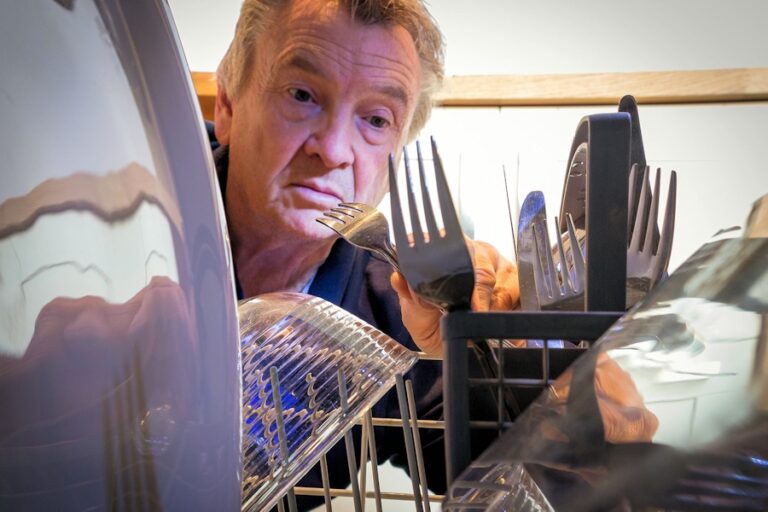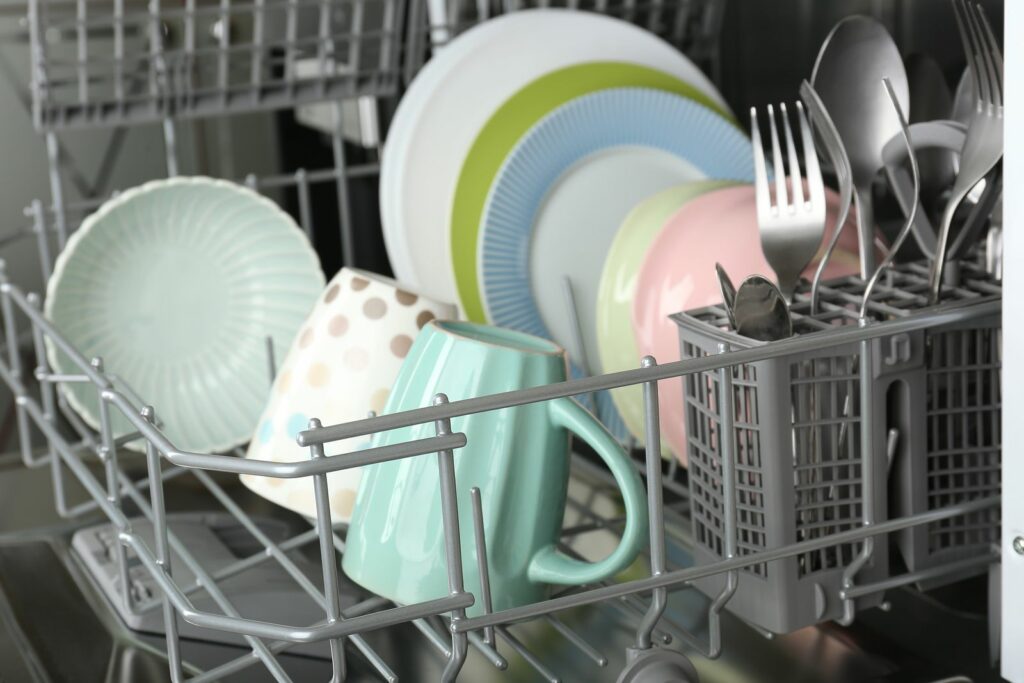
Is it Dishwasher Safe?
These days our kitchens are filled with appliances and gadgets we take for granted. The dishwasher is one of them. Many of us in our “seasoned” years can look back to a time in our youth when most kitchens did not have a dishwasher. We remember the excitement of using one for the very first time.
Today, it’s easy to forget what it was like to have to wash every plate, cooking pot, and utensil by hand. It has become second nature to simply load everything into the dishwasher, pop in some soap, and push a button. However, even with the marvel of the dishwasher, some things should still be washed by hand. Here are just a few.
Do NOT put in dishwasher…
WOODEN COOKING UTENSILS AND CUTTING BOARDS
The high temperatures in your dishwasher are too harsh for wood, which tends to weaken, swell, warp, and crack when exposed to heat. Check the manufacturer’s instructions before putting anything made of wood into your dishwasher.
TIP: Wash your cutting board with water and a little dish soap and rinse well. Make sure to clean the underside and edges. Spray with white vinegar often to disinfect. Occasionally, sprinkle baking soda over wood and scrub with hot water and a sponge or brush. To get rid of lingering odors, simply cut a lemon in half and rub the cut side of the fruit over the wood.
CRYSTAL AND DELICATE GLASS ITEMS
Crystal and hand-blown glass are sensitive to heat and can be easily damaged by the abrasive soaps used in dishwashers. Putting these items in the dishwasher will often cause them to dull, crack, and chip. Some crystal is dishwasher safe so check the manufacturer’s instruction. Even if it is safe to put your crystal in the dishwasher, always take precautions to keep it secured in place.
TIP: Wash crystal by hand in warm (not hot), soapy water. Rinse thoroughly and dry immediately to avoid a cloudy build-up.
TABLEWARE WITH GOLD TRIM OR DETAILS
The beautiful gold embellishments that make vintage plates, cups, saucers, bowls, and platters so beautiful may be able to stand a few cycles through a dishwasher, but the process can take a damaging toll. Hot temperatures, strong water pressure, and abrasive detergents cause delicate gold details to fade and/or deteriorate. Some newer items may be able to withstand time in a dishwasher, but make sure to follow the manufacturer’s instructions.
TIP: Clear off all leftover food scraps using a rubber scouring tool. Wash with a mild dishwashing liquid and dry immediately. If some food remnants are difficult to remove, apply a paste of baking soda and soda using a soft cloth. Rinse well and dry.
CAST IRON POTS AND PANS
Although you can put cast iron pots and pans in the dishwasher, it’s probably not a good idea. Putting cast iron through the dishwasher can cause rusting, expose the metal within, and destroy layers of seasoning. It’s also important to avoid using metal scouring pads when washing cast iron by hand to preserve the nonstick surface.
TIP: Rinse a cast iron pan with hot water immediately after cooking. Remove burned-on food by rubbing the pan with salt while it is still warm. Dry the skillet thoroughly, and lightly coat its cooking surface with cooking oil. Cover the pan with a paper towel while storing to protect from dust.
ANYTHING WITH A LABEL
Always remove labels and stuck on adhesive from bottles and other items before placing in THE dishwasher. If you don’t, paper and glue can get into your dishwasher’s filter, sprays, and pump. At best, the foreign substances will impact your dishwasher’s performance. At worst, you will face costly repairs or may have to purchase a new dishwasher.
TIP: Let a labeled item sit in hot water for a few minutes to loosen the label. Make sure glass is cool enough so you can touch it without burning your hands and then peel off as much of the label as possible. Rub with a couple drops of cooking oil on a paper towel. Rub until glass is clean of label and glue. Then wash in dishwasher.


Age Adds Flavor
We are not old, we are seasoned!
Don’t forget to visit us on FACEBOOK!
